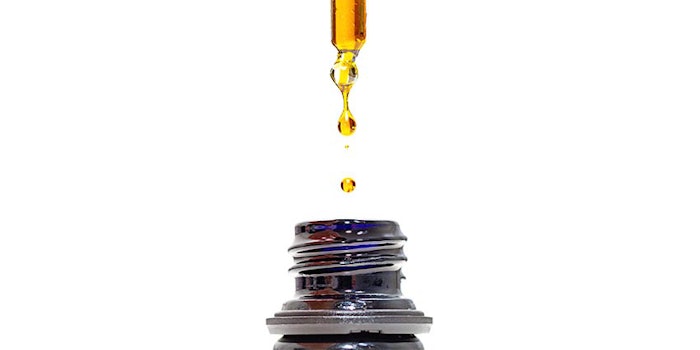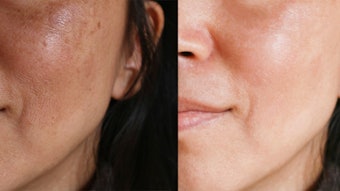
Nielsen released its 2020 forecast for the U.S. CBD and consumer packaged goods (CPG) industries, projecting that the hemp-based CBD market could be a $2.25 billion to $2.75 billion industry in 2020–this projection includes the factoring in of possible speed bumps and Food and Drug Administration (FDA) hinderings.
Related: CBD, Claims, Chaga, Startups & More: 2019 SCC Annual Meeting
Over the next decade, Nielsen predicts the FDA will continue affecting the evolution of the hemp-based CBD market, adding that consumers and companies will wait for additional guidelines from federal regulators. In addition, for marketers and consumers, data and information about cannabis will be in demand in 2020.
Related: Clearing the Haze Around CBD Cosmetics at SCC Annual Meeting
With the anticipation of the hemp-based CBD market’s growth, Nielsen identified that the CPG and traditional retail industries will be shaken up by the potential competition from CBD products.
Related: 7 Trends You Should Know Before Heading into 2020
Rise in targeted education efforts
Education will remain a necessity for manufacturers/retailers, and health care providers can expect a rise in manufacture-driven, educational efforts. Nielsen’s Q4 Health Care Practitioner Tracking Study discovered that while 70% of surveyed practitioners said they discussed CBD with their patients, only about one-in-three were knowledgeable about the laws surrounding hemp-CBD.
Over the next decade, Nielsen predicts primary health care practitioners may do more to drive trial and brand/format loyalty than traditional branding/marketing efforts. Nielsen’s Thinking Beyond the Buzz study found that medical advice is a major motivator to hemp-based CBD trial.
According to the study, when asking hemp-CBD interested adults what would motivate them to try a hemp-CBD product:
- 50% said they would for a health care practitioner’s guidance
- 16% said they would for a family member’s recommendation
- 17% said they would for a friend’s recommendation
- 15% said they would if the product was manufactured by a familiar brand
In coming years, substitute CBD products targeted toward arthritis, sleep and general pain will attract a larger percentage of non-CBD users.
Fall in CBD prices
To maximize their opportunities to compete within the CPG space, CBD manufacturers will begin to narrow the price gap between hemp-based CBD products and their CPG equivalents. The current gap is large, with CBD products, depending on potency, often ranging between four and 10 times the retail price of their CPG counterparts.
Over the next decade, the number of U.S. hemp farmers will rise, as will the multi-million dollar investments Canadian licensed producers are making in cultivating hemp in the U.S. market.
Additionally, Nielsen expects to see price efficiencies from the growing of hemp in Latin American countries. Also, according to a study by Hemp Benchmarks, 50% of current U.S.-based hemp cultivators expect to increase the acreage they devote to hemp cultivation.
All of these factors will push hemp-derived CBD to being more affordable for producers/manufacturers, which will lead to lower prices for consumers.
Growing appetite for ingestibles
Pending the FDA's permission for manufacturers to legally infuse hemp-CBD extracts into ingestible products, capsules, gummies and beverages will significantly grow their user bases.
Nielsen projections show that with FDA approval, ingestible formats could grow their existing user base as much as 250% to 375% in a year's time. These formats will benefit from technological advancements, like water-soluble and nano-technologies that allow for more efficient absorption.
Consumers pass CBD curiosity onto their pets
Nielsen's data shows that 37% of dog owners who already give their dogs vitamins and supplements said they're likely to give their dog a CBD infused vitamin in the next 12 months.
According to the Thinking Beyond the Buzz study, of dog owners who claimed to have given their dog a CBD product, more than 20% used a product not specifically formulated for dogs. To ensure that this number doesn't grow, its imperative for pet CBD product manufacturers to provide a recognizable/valued level of differentiation between their products and those intended for humans.
Emerging battle at retail
Over the next decade, traditional brick-and-mortar CPG retail channels—including food, drug, mass, club, convenience and dollar store channels—will begin stealing share from online and local CBD retailers, as well as vape/tobacco shops.
Consumers who say they will consume CBD products in the next 12 months but have yet to consume are more than twice as likely to state that they will shop for CBD products at a grocery chain/ mass merchandiser. These same consumers are more than 3.5 times more likely to state that they will purchase CBD products from a chain drug store.
With the rising appeal of hemp-CBD and ubiquity of CPG, the two industries have much to offer each other. As the regulatory outlook becomes clear, manufacturers and retailers can’t afford to ignore the still-nascent CBD space.










